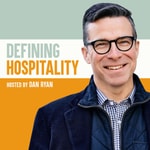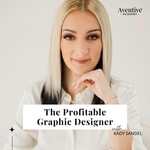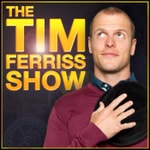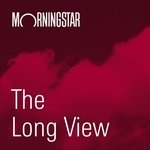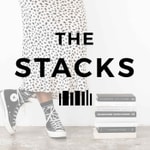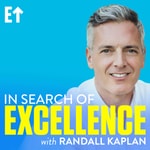How Brands Are Built – Details, episodes & analysis
Podcast details
Technical and general information from the podcast's RSS feed.
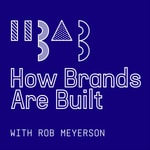
How Brands Are Built
How Brands Are Built
Frequency: 1 episode/49d. Total Eps: 53

Recent rankings
Latest chart positions across Apple Podcasts and Spotify rankings.
Apple Podcasts
🇫🇷 France - marketing
26/07/2025#98🇫🇷 France - marketing
25/07/2025#77🇫🇷 France - marketing
24/07/2025#48🇫🇷 France - marketing
21/07/2025#94🇫🇷 France - marketing
20/07/2025#80🇫🇷 France - marketing
19/07/2025#57🇫🇷 France - marketing
18/07/2025#36🇩🇪 Germany - marketing
15/07/2025#85🇬🇧 Great Britain - marketing
24/06/2025#88🇬🇧 Great Britain - marketing
03/06/2025#98
Spotify
No recent rankings available
Shared links between episodes and podcasts
Links found in episode descriptions and other podcasts that share them.
See all- https://asana.com/
497 shares
- https://www.google.com/
158 shares
- https://www.economist.com/
108 shares
- https://www.apple.com/
191 shares
RSS feed quality and score
Technical evaluation of the podcast's RSS feed quality and structure.
See allScore global : 63%
Publication history
Monthly episode publishing history over the past years.
Jacob Cass ran a wildly successful summit
Season 5 · Episode 6
lundi 23 décembre 2024 • Duration 40:50
In today's episode of How Brands Are Built, host Rob Meyerson speaks with Jacob Cass, designer, brand strategist, and founder of Just Creative, about his recent venture: the Brand Builders Summit. This innovative, four-day virtual event featured 24 speakers and attracted over 20,000 attendees from 156 countries, significantly surpassing Jacob's initial goals. Jacob discusses the unique format of the summit, which blended pre-recorded sessions with live Q&As, panels, and workshops, emphasizing the crucial integration of brand strategy, design, marketing, and community. He reveals insights into the promotional strategies that generated buzz and shares logistical lessons learned while managing a large-scale event. The conversation also highlights the importance of speaker relationships, communication tools like AI chatbots for participant support, and plans for future enhancements to improve networking opportunities. Jacob's commitment to feedback and reflection post-event underscores his dedication to continual improvement. Listeners are invited to explore Jacob's work at Just Creative and look forward to the next Brand Builders Summit in 2025 (if Jacob decides to give it another go!). Join us to dive into an inspiring discussion on strategic marketing, community engagement, and the key elements driving successful brand experiences.
Alex Center links package design to fashion
Season 5 · Episode 5
mardi 2 juillet 2024 • Duration 56:18
Today's guest is Alex Center, a designer and podcaster and founder of the award-winning design and branding studio, CENTER. From 2006 to 2017, Center worked for the Coca-Cola Company, helping build the brands Vitaminwater, Powerade, and Smartwater. Today, he and the team at CENTER are building the next generation of icon brands partnering with companies like United Sodas of America, Apple, HEYWEAR, Good Light, New Balance, SIMULATE, and Liquid Death.
One of the reasons I wanted to talk to Alex today is because his agency, CENTER, is a contributor to the new edition of Designing Brand Identity. CENTER pitched in on the pages about package design and differentiation, and also contributed a case study for KatKin, "a nutrition, education, and community-focused cat-care brand based in the UK that works with world-leading veterinarians and nutritionists to develop food that gives cats the nutrients they actually need." We talk about these cases, how Alex approaches branding and package design, and more on this episode of the podcast.
Emily Heyward builds brands that inspire obsession
Season 4 · Episode 5
lundi 23 novembre 2020 • Duration 40:46
Emily Heyward is co-founder and and Chief Brand Officer at Red Antler, the leading brand company for startups and new ventures. Red Antler is the branding firm behind brands like Casper, Allbirds, Keeps, and Burrow. They also work with established brands like American Express, HBO, Google, and Gap.
Emily was named among the Most Important Entrepreneurs of the Decade by Inc. Magazine, and has also been recognized as a Top Female Founder by Inc. and one of Entrepreneur's Most Powerful Women of 2019. She's also the author of a new book, Obsessed: Building a Brand People Love from Day One.
I asked Emily what makes Red Antler different from other branding firms and what makes it, in the words of a 2018 Adweek article, one of "the surprisingly small group of branding shops behind today's top challenger brands." She says Red Antler was "the first creative services company that was designed and built to work with startups" and, as a result, "we've thought about brand in an incredibly holistic way … with obviously a particular focus on digital."
Next, we turned to Emily's book, Obsessed.
"The book really came out of 12 years of running Red Antler, launching new, disruptive businesses into the world, and seeing the ways in which brands’ relationships with consumers are shifting. … The rules are not the same as they were, certainly 20 years ago, but even six years ago. Things keep changing.”
– Emily Heyward
Then we turned to the events of 2020, and I asked Emily for her take on how brands should respond to racial injustice, as well as the COVID pandemic. Lastly, I asked Emily some wrap-up questions, including a brand/initiative she recommends checking out (the 15 Percent Pledge), a book recommendation (On Earth We’re Briefly Gorgeous), and her advice to you people in the industry:
"Be curious. I think that so much of what we do is a response to the world around us—to culture and trends and what makes people tick. And when I meet with someone that doesn’t seem like they're passionate about what's happening in the world, and what businesses are out there, and what they're seeing, and what they're loving—for me, that's an immediate red flag."
– Emily Heyward
To learn more about Emily and Red Antler, visit redantler.com or emilyheyward.com. Obsessed is available on Amazon and wherever books are sold.
Armin Vit has a little grid in his mind
Season 4 · Episode 4
lundi 9 novembre 2020 • Duration 57:17
Today’s guest is Armin Vit, co-founder of UnderConsideration, a graphic design firm, and editor and writer for Brand New, the leading site for reviews of corporate and brand identity design work. Born and raised in Mexico City, Armin—along with his wife and partner, Bryony Gomez-Palacio—have created multiple other design blogs, co-authored books, and organized events like the annual Brand New Conference. I was excited to talk to Armin about design trends, blogging, and the pros and cons of being a professional critic.
The conversation started with some ancient history, going back to a blog called “Speak Up,” and FutureBrand’s 2003 redesign of Paul Rand’s UPS logo, which gave rise to Brand New.
I asked Armin how he selects which work to review on Brand New, and he said he has a "little grid" in his mind. The more people are likely to be familiar with the client, the more likely he is to write about the work. If the client is small and unknown, the work has to be groundbreaking. Much of the work he sees is "fine"—but work that's just fine is actually less interesting than work that's terrible.
I meet other designers [that] will joke that they are always wondering ... what I might say. They're always thinking about, 'Oh shit, I hope this doesn't make it on Brand New. Or if it does, I hope it goes fine.' It just increases that level of stress ... but in a positive way that I have to make sure that what I'm saying is valuable to as many people as possible and doesn't put down anyone just for the sake of it.
Armin Vit
Armin and I went on to talk about a design trend he's seen lately: a stampede of wordmarks featuring geometric sans fonts, like Airbnb and Google, and the backlash against them, epitomized by the Chobani logotype.
Next, we discussed how design and branding can make a positive impact on the world, his experience as a Mexican-American immigrant and how it influences his thinking as a designer—especially given some of the Trump administration's rhetoric and policies toward immigrants and Mexico in particular.
I asked Armin for an example of some work he's seen that's making a positive impact, and he mentioned IBM's "Be Equal" campaign, which repurposes a bee designed for IBM by Paul Rand, highlighting an equals sign in its stripes.
To close out, I asked for Armin's book recommendations (he likes Branding: In Five and a Half Steps, by Michael Johnson) and his advice for young designers and people in the branding industry: "Look at a lot of brand design ... It's really about building your palate for identity design, how colors work, how typefaces work. It's not about copying anything, but taking bits of pieces from different places, and how you will apply that to your own lens, to your clients, or to your work. It's consuming a lot of identity design and letting it simmer in your subconscious." But honestly, he says, that's not just a pitch for Brand New.
To learn more about Armin, visit UnderConsideration, from which you can find Brand New as well as design work by Armin and Bryony, books they've written, like Flaunt, and events like the Brand New Conference.
Sunny Bonnell reframes your vices as virtues
Season 4 · Episode 3
lundi 26 octobre 2020 • Duration 51:39
On the podcast today: Sunny Bonnell, co-founder of Motto, one of the leading branding agencies in the country, with clients like Google, Hershey's, and Twentieth Century Fox. Sunny and her co-founder, Ashleigh Hansberger, recently wrote their first book, Rare Breed: A Guide to Success for the Defiant, Dangerous, and Different. Sunny says the book started with a question: "What if you could take the parts of yourself that other people criticize—traits they call defiant, dangerous, and different—and turn those things into your selling points?"
We talked about how Sunny and Ashleigh arrived at the seven "virtues" in Rare Breed:
- Rebellious
- Audacious
- Obsessed
- Hot-blooded
- Weird
- Hypnotic
- Emotional
If you're curious which virtue applies to you, try the Rare Breed quiz. Sunny and Ashleigh also host a YouTube series, also called Rare Breed, where they sit down with guests like Charlamagne Tha God and Jon Batiste. I asked Sunny about Motto's origin story, the challenges of being one of very few female-owned agencies, the importance of diversity, and more. Toward the end of the conversation, Sunny recommended a few books: It's Not How Good You Are, It's How Good You Want to Be and Whatever You Think, Think the Opposite, both by Paul Ardern, as well as The Hero and the Outlaw, by Margaret Mark and Carol Pearson. We ended with some of Sunny's motivating advice for anyone trying to grow their career: "Own who you are. In a world that wants to own you, owning yourself in this way can really hurt like hell. Being defiant, dangerous, and different is a gift. Succeed because of who you are, not despite who you are." To learn more about Sunny, check out her agency's work at wearemotto.com. Rare Breed is available now on Amazon and elsewhere. And, if you go to rarebreedbook.com, you can watch episodes of Sunny and Ashleigh's YouTube show and take the Rare Breed quiz. If you take the quiz or read the book, drop us a line on social media-I'd love to hear your thoughts, and I'm sure Sunny would, too. Episode sponsors
- The Brand Strategy Kit from Egle Karalyte. Available in both digital and print formats, the Kit provides structure and tools to streamline and gamify your branding process.
- Squadhelp. To begin a business name contest with hundreds of business naming experts, check out their services to get a fresh perspective on your company.
Dava Guthmiller makes the invisible visible
Season 4 · Episode 2
lundi 12 octobre 2020 • Duration 44:25
In this episode, I'm talking to Dava Guthmiller, founder and Chief Creative Officer at Noise 13, a brand strategy and design agency based in San Francisco. She's also cofounder of In/Visible Talks, and annual conference that celebrates the art of design and creativity, and In/Visible Project, which includes a collection of other events that bring people together over the process, inspiration, and challenges for design and creative professionals.
Throughout the conversation, we touched on diversity in the worlds of design and branding. I asked Dava what it was like to start Noise 13 as a young, female designer, and how In/Visible Talks is giving a platform to a racially diverse and heavily female-leaning group of speakers.
Next, we got into the weeds a bit on how Dava built the In/Visible Talks brand. She told me where the name came from and how the visual identity for year one involved a trip to the dollar store.
We rounded out the conversation, as we often do on the podcast, with book recommendations and advice for young professionals in the branding and design industry. Dava recommended The Empathy Edge by Maria Ross (see Maria's post on How Brands Are Built) and Marty Neumeier's Brand Flip. And she had several pieces of advice for young designers, including encouragement to try many different internships and jobs until you find the best fit: "Take internships. Find a mentor. Try it on. Try a small company. Try in-house. Try something big. This is your life. This is your job. Find the right project team fit for you, so that your life is not miserable."
To learn more about Dava, visit Noise 13 or In/Visible Talks. The annual conference will be on Jan 14, 2021, and early bird tickets are on sale now.
Dr. Jason Chambers explains the origins of racist brands
Season 4 · Episode 1
lundi 28 septembre 2020 • Duration 51:47
Season four has arrived, and my first guest is Dr. Jason Chambers of the University of Illinois. The theme for this season will be a bit looser than past seasons, but I'm hoping to get perspectives on the social impact of brands and branding. In other words, are brands a good thing for society, overall? In light of what's happened in 2020-the pandemic, protests for racial justice, increasingly extreme weather as a result of climate change, and even the U.S. presidential election-this topic felt relevant.
I first heard Dr. Chambers on 1A, a podcast from WAMU that's distributed by NPR, where he talked about "reckoning with racist brands" like Aunt Jemima and the Washington, D.C., NFL team. I was excited to talk to Dr. Chambers in a little more detail about these brand names, where they come from, why they should change, and how to change them.
Dr. Chambers's research is focused on the history of African Americans in the advertising industry, a topic about which he's written a book: Madison Avenue and the Color Line: African Americans in the Advertising Industry. Given his expertise, I also wanted to get his take on diversity in the agency world.
I don't often interview professors on the show (which makes sense, given it's a show about "how brands are built"), but I had so much fun talking to Dr. Chambers and exploring his in-depth knowledge of these subjects; I hope this is not the last time I host an academic or professor on the show.
To hear more from Dr. Chambers, I encourage you to check out the episode of 1A he joined, "Reckoning With Racist Brands." You can also find his opinions in publications like Ad Age, Adweek, CNN, Forbes, Black Enterprise, and The New York Times. He's written another book, too: Building the Black Metropolis: African American Entrepreneurship. Lastly, you can of course find him on the University of Illinois website and LinkedIn.
Special episode: Rob on IG Live with Ilya of Studeo
lundi 27 juillet 2020 • Duration 58:36
On June 11, 2020, Rob (creator and host of How Brands Are Built) joined Ilya Lobanov of Studeo on Instagram Live for a chat about brand strategy and naming. Ilya is an Australia-based designer and strategist who teaches multiple branding classes (available on his site and Skillshare).
Given Ilya's design background and Rob's naming experience, the conversation often covered similarities between design and naming. This special episode features the entire IG Live conversation (including live comments from viewers, which Ilya occasionally reads out loud). The episode is also available on IGTV and as a YouTube video.
If you like the interview, follow Ilya on Instagram (@wearestudeo), where he's also interviewed designers and branding experts like Michael Janda and Reagan (Frank) Mackrill of G'Day Frank.
Special episode: Rob on the JUST Branding Podcast
lundi 13 juillet 2020 • Duration 57:28
Rob joins Jacob Cass of JUST Creative and Matt Davies on their new podcast, JUST Branding. We explored best practices for naming, positioning statements, and conducting discovery for brand strategy through the lenses of the company, client, and consumer. Rob shared actionable tips and real-world examples that will help you build a better brand.
Mini episode: David Aaker on game-changing subcategories
lundi 27 avril 2020 • Duration 20:08
Today's episode features a rare repeat guest: none other than David Aaker, Professor Emeritus at the Haas School of Business, UC Berkeley, Vice-Chair at Prophet, a global marketing and branding consultancy, and prolific author of books and articles about branding.
Last time David was on the podcast, we talked about two of his books, Aaker on Branding, 20 Principles that Drive Success, and Creating Signature Stories. We also talked at length about his brand vision model. If you’re interested in hearing that longer conversation with “the Father of Modern Branding,” go take a listen.
This time, we’re talking about David’s newest book, Owning Game-Changing Subcategories: Uncommon Growth in the Digital Age. The premise of the book is that the only way for a business or brand to grow (with rare exceptions) is "to create or find 'must haves' that define whole new subcategories that can attract a loyal customer following."
During the conversation, David explains where he got the idea for the book, what he means by terms like "game-changing subcategory" and "must haves," and how digital has changed everything. He also illustrates his ideas through examples like Dollar Shave Club, Apple, and Airbnb. At the end of the conversation, David provides one final piece of advice to business owners and brand managers:
"Look for opportunities to create subcategory platforms—new ways [of] looking at what the customer is using and their relationship with the brand. And when you see one, think long and hard before you turn your back on it. ... Take some risks and make some investments, make some commitments. Because that's really the only way to grow."

